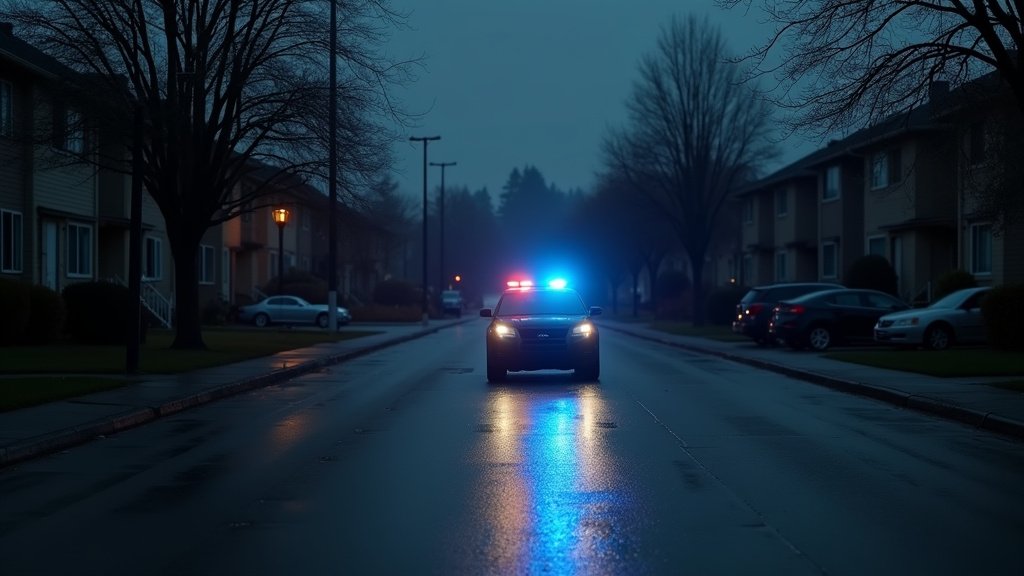The Oregon Legislature’s last attempt to pass a 3-cent gas tax increase has failed. This setback, which occurred prior to June 30, 2025, was the final effort by Oregon Democrats to prevent layoffs at the Oregon Department of Transportation. The failure specifically concerned a transportation package. Governor Kotek attributed the failure to Republicans.
Background of the Gas Tax Proposal
The proposed 3-cent gas tax increase was a central component of a larger transportation package aimed at securing the financial stability of the Oregon Department of Transportation. The department was facing potential budget shortfalls that could have led to significant job losses and a reduction in critical transportation services. The Democrats, who spearheaded the initiative, argued that the tax increase was essential to maintain current infrastructure projects and to fund future improvements to the state’s road and bridge network. They framed the proposal as a necessary measure to ensure the safety and efficiency of Oregon’s transportation system.
Political Divide and Negotiations
The failure of the gas tax increase highlighted the deep political divisions within the Oregon Legislature. The Democrats, holding a majority in both legislative chambers, faced strong opposition from Republican lawmakers who argued against the tax increase. Republicans expressed concerns about the potential burden on Oregon residents and businesses, particularly those in rural areas who rely heavily on automobiles for transportation. They also questioned the efficiency and spending priorities of the Department of Transportation, calling for greater fiscal responsibility.
Negotiations between the two parties proved unsuccessful. Democrats attempted to persuade Republicans by offering various concessions and amendments to the transportation package. These included streamlining certain projects, reducing administrative costs, and directing a portion of the revenue to specific infrastructure needs in Republican-represented districts. However, these efforts failed to bridge the gap, as Republicans remained steadfast in their opposition to the tax increase.
Consequences of the Failure
The immediate consequence of the gas tax increase’s failure was the looming threat of layoffs at the Oregon Department of Transportation. Without the additional revenue, the department was forced to re-evaluate its budget and consider workforce reductions to balance its finances. This created uncertainty among the department’s employees and raised concerns about the potential disruption of ongoing transportation projects.
Beyond the immediate impact on the Department of Transportation, the failure of the transportation package had broader implications for Oregon’s infrastructure. The state faced challenges in maintaining and upgrading its existing road and bridge network. Delays or cancellations of planned projects were also possible. The lack of funding could also hinder the state’s ability to address emerging transportation needs, such as the development of electric vehicle infrastructure and the expansion of public transit options.
Governor Kotek’s Response
Governor Kotek, a Democrat, publicly expressed disappointment over the failure of the gas tax increase. She placed the blame on Republicans, citing their unwillingness to compromise on the issue. The Governor emphasized the importance of a stable transportation system for Oregon’s economic growth and the safety of its citizens. She pledged to work with all parties to find a solution to the state’s transportation funding challenges.
Republican Opposition
Republicans defended their position, arguing that the gas tax increase was not the only solution to the transportation funding problem. They proposed alternative approaches, such as reallocating existing resources, finding efficiencies within the Department of Transportation, and prioritizing essential projects. Republicans asserted that their primary concern was protecting the financial interests of Oregon taxpayers. They also accused the Democrats of failing to adequately address the department’s spending practices.
Future Outlook
The failure of the gas tax increase and the broader transportation package created uncertainty about the future of transportation funding in Oregon. Legislative leaders, including Governor Kotek, faced the difficult task of finding common ground and reaching a compromise. Options that may be considered include revisiting the gas tax proposal, exploring alternative revenue sources, or implementing cost-cutting measures within the Department of Transportation. The long-term implications of the impasse will likely be felt for years to come.
The Oregon Department of Transportation will need to make difficult decisions to address the budget shortfall and mitigate the impact on its employees and projects. The failure of the transportation package brought the issue of the state’s infrastructure funding to the forefront, highlighting the need for bipartisan cooperation and a sustainable funding model that ensures a safe and efficient transportation system for all Oregonians.




